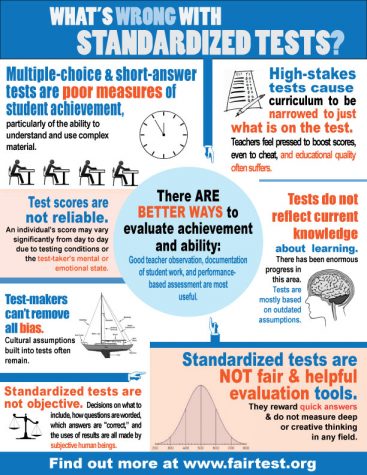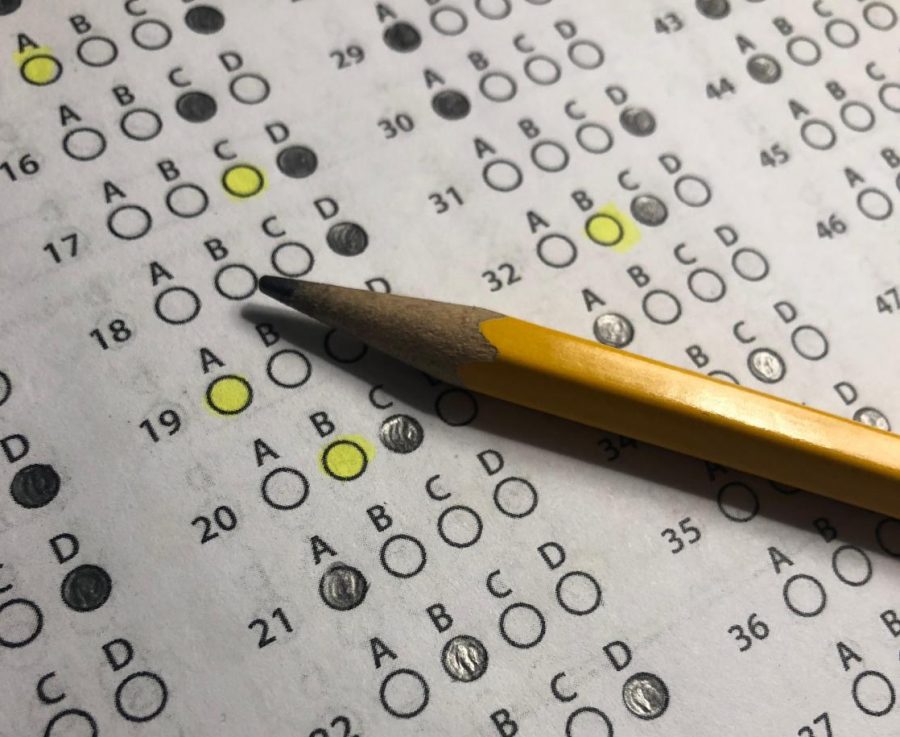How Well do Standardized Tests Measure a Student’s Ability?
Scantron from standardized test.
Do standardized tests accurately measure the extent of a students’ ability to perform in the core subjects? Should one test, such as the SAT, be the determining factor in deciding what a student is capable of?
For some students at Adams, tests have never been a strong suit. Many students perform better in the standard classroom than they do on standardized tests, greatly affecting grade point average. According to a Concordia University blog, these tests do not advance critical thinking skills and lack in providing the best evidence of a students’ knowledge and level of performance in a certain subject area. This also leads to a tendency to focus an entire class on learning the skills needed to achieve a passing test score, while neglecting to teach students the actual material and skill sets needed to excel in higher education.
Although, according to the Concordia University blog, the opposing argument is that these tests allow teachers to accurately measure a students’ abilities, and where they struggle and excel in the standard curriculum. Nevertheless, is this method really effective in determining what a student has learned and whether they are capable at excelling in a particular field?
“I do not typically do well on standardized tests, and this negatively affects my grade. I do not think it is fair that my work in a class is shown by one test score at the end of each semester because some people are not good test takers,” said junior Shannon Grates.
Students like Grates tend to not perform as well on large tests, and are therefore, penalized. Although, students like Grates might use the excuse of not being a good test taker, this can be disproven. An article from Penn State University, states that someone who is a “bad test taker” simply fails as a result of increased anxiety leading up to a test, making them unable to access information they studied the previous night. Some students do in fact, struggle more on standardized tests due to an inability to retain excessive amounts of information, even if they have learned the material in the past.

Chart of all the flaws in standardized tests.
“My test scores depend on whether I study or not and how much anxiety I have leading up to the exam. I do not think standardized tests represent my skills in a subject and everyone learns differently. For some people, taking tests is more difficult than it is for others,” said junior Kayla Morris.
Another argument against standardized tests according to an article from the Graphic is these tests do not measure a student’s intelligence, but rather their ability to sit and take a test. It also states that standardized tests place the basis of a student’s entire future on one three-to-four hour period of time. According to the author of the article, Evelyn Lee, we are better off by doing away with standardized tests all together because they serve to create a drastic increase in anxiety and pressure to perform, while lacking in showing a students full potential.
There are many factors that display the growing apprehension towards standardized tests. Some of which are whether they accurately display a student’s knowledge and ability in a subject, or whether the prospect of a “good test taker” compared to a “bad test taker” can influence the results of an exam. Standardized tests may help schools determine where a student lies on the education spectrum, but they do not accurately represent every students full potential depending on their ability to take tests, and excel on them.










